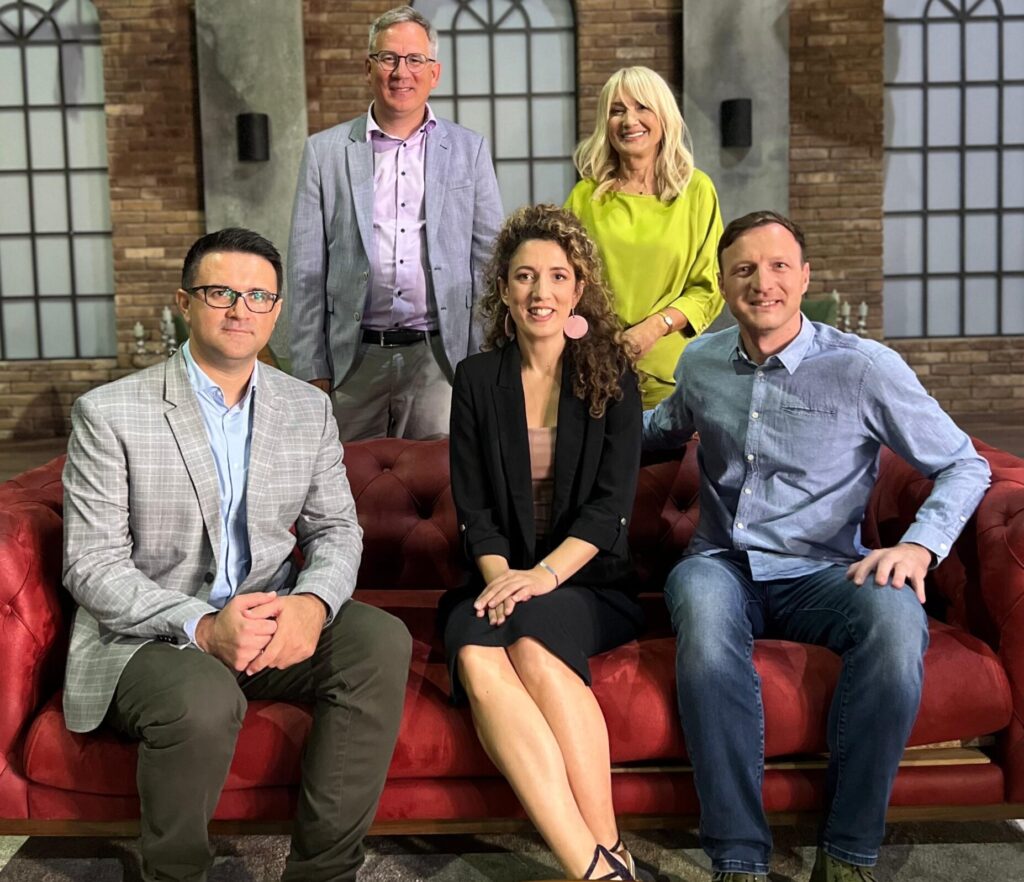Although the Western Balkan countries are formally moving toward European integration, the legacy of the 1990s still shapes their public sphere. Without multiperspective approach to history teaching that develops critical thinking, there can be no genuine dealing with the past or reconciliation. Projects such as the Joint History Textbooks have shown that agreement is possible, but it is politics that determines how far education will go on the path to reconciliation – these were among the conclusions of Civic Corner, a TVE programme produced by the Centre for Civic Education (CCE), which focused on how history is taught across the region. Zvezdana Kovač, Director for Strategy and Communications at CCE, discussed this topic with Igor Radulović, history teacher from Podgorica; Branimir Janković, history professor at the Faculty of Humanities and Social Sciences, University of Zagreb; Ana Radaković, researcher at the Institute for Contemporary History in Belgrade; and Amir Duranović, history professor at the Faculty of Philosophy, University of Sarajevo.
“In Montenegro, monuments are erected to war criminals; in Serbia, murals glorify convicted war criminals; in Croatia, hundreds of thousands of people attend concerts featuring Ustaša symbols; while in Bosnia and Herzegovina, genocide denial has become part of political life. In such an environment, history education becomes crucial. What young generations will think about the past, and what values they will carry into the future, depends primarily on how we teach them history. Whether it will be critical reflection or reproduction of myths — that is the question on which the stability of societies in the region depends,” said Zvezdana Kovač, opening the discussion.
“Despite a quarter of a century of efforts to improve history education, the results remain unsatisfactory. History continues to be used as a tool for manipulating young people. However, projects like the joint history textbooks have at least created a nucleus of teachers who think about multiperspective approaches,” noted Igor Radulović, referring to the Joint History Textbooks Project for 13 Southeast European countries.

The program also featured a 15-minute documentary explaining how these textbooks were created, who their authors are, and how historians and editors from all 13 countries managed to reach a consensus on shared content. The books promote an interdisciplinary approach and the development of critical thinking among pupils and students, leading to the key question of how ready the region is to embrace and promote such a model.
Ana Radaković spoke about the experiences of teachers who, while trying to apply such approaches, face strong external pressures. “They are pressured by parents, colleagues, and even local media. Attempting to step outside ethnocentric narratives often carries risk. The joint textbooks could be an important tool because they provide accessible historical sources and didactic guidelines,” she explained.
Amir Duranović reminded that the education system in B&H still bears the consequences of the 1990s peace agreements. Ten cantons, two entities, and the Brčko District all have jurisdiction over education, creating a system where divisions have become “normalized” for young generations. “For those born in the mid-1990s, a divided education system is not a transition but a natural state. Sadly, political parties continue to use history in schools to preserve their power gained in the 1990s,” he said, adding that he nonetheless sees optimism in “the energy of young teachers who want a different approach.”
Branimir Janković emphasized that Croatia’s education system remains marked by ethnic homogenization after the war. “The Croatian narrative is based on the victory in the Homeland War, but often in a triumphalist way that excludes other perspectives. Although there have been attempts at pluralism, the national framework still dominates, and reform processes depend on political will,” he noted, recalling that in 2023 Croatia even withdrew a textbook over disputed interpretations, showing how inconsistent approaches to history remain.
Participants rejected frequent criticism that that multiperspectivity means relativizing responsibility. “Multiperspectivity does not mean equalizing guilt – it simply allows students to view events from different angles and hear, for the first time, the voices of ‘the other side,’” explained Janković. Radulović added that such methods, developed in Western European schools, “foster critical thinking and democracy in the classroom.” In Serbia, a curriculum reform was implemented in 2018, but according to Radaković, proper implementation has been lacking. “Teachers received no real support. Instead of gaining freedom to design lessons, the reform became an additional burden. Resistance grew to the point that in 2021 a petition was launched to abolish it,” she said.
All participants agreed that political will is key to meaningful change.
“If Japan, a developed country, wants to learn from our textbooks, why couldn’t we? It takes courage to face our own past,” said professor Duranović.
Radulović expressed concern also about revisionism in Montenegro. “All these political developments are slowly preparing the ground for the rehabilitation of certain narratives, even movements that clearly have no place in textbooks are being presented in ways that they should not be,” he warned.
Ana Radaković stressed the importance of finding common interests. “For too long, we have been searching for differences among our peoples and cultures, when in reality they are not that great. There is no greater interest than having educated, intelligent, and critically minded young people who want to live and work in their own countries,” she concluded.
“Unlike in the 1990s, when many were taken by surprise by what was happening, we are now more aware and connected. We are building networks and realize we must remain active and respond to issues we cannot afford to ignore,” added Janković.
Duranović pointed out that the political difficulties across Southeast Europe, particularly in foreign policy, show, as the case of Ukraine illustrates, that even on the most complex issues, it is ultimately possible to reach some form of agreement and “synchronized” action.
The full episode is available at: https://www.youtube.com/watch?v=NBvGroq4JcA
Enes Pućurica, Programme Associate
